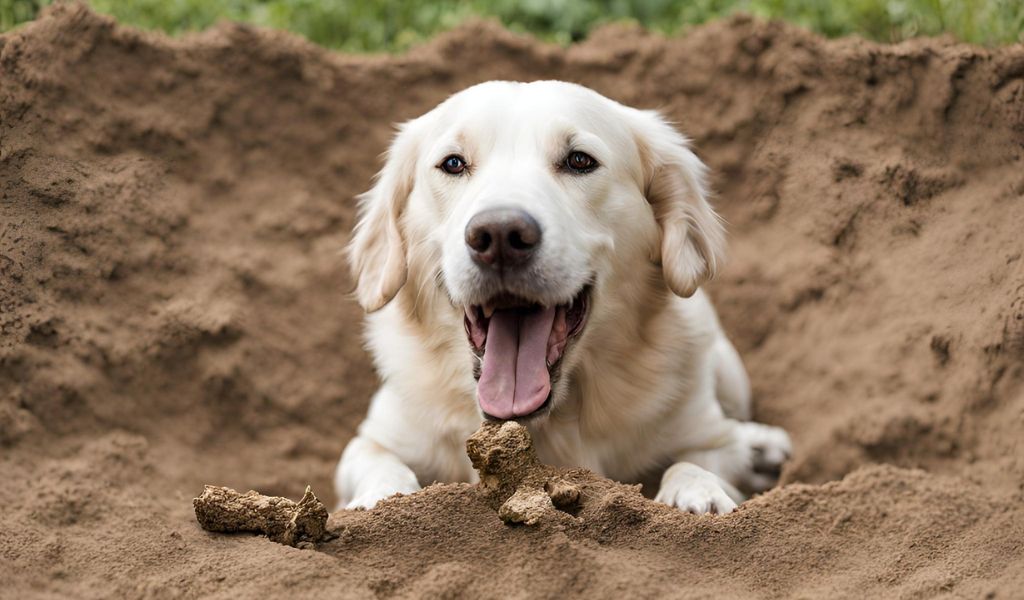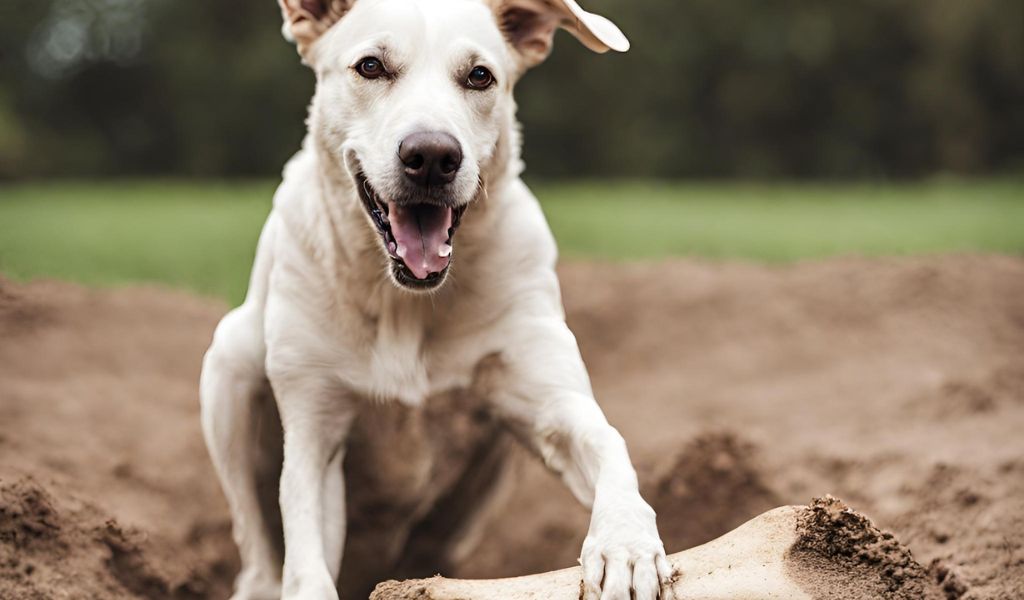Dogs certainly do seem to remember where they bury things. Research has shown that dogs possess good memories which, when combined with their incredible sense of smell, enable them to find their previously buried treasures.
Do Dogs Really Remember Their Buried Treasures? 9 Surprising Facts Revealed!
Ever watched your furry friend bury a bone in the garden and wondered if they’ll remember its location days, weeks, or even months later?
The question, “Do dogs remember where they bury things?” has intrigued dog owners and scientists alike for years. Let’s delve into the depths of canine cognition and unearth the answers.
Do dogs remember where they bury things?
Dogs, with their keen senses and instinctual behaviours, have shown remarkable memory capabilities. But do these capabilities extend to recalling buried items?
The science behind a dog’s memory
Canine memory, much like human memory, is a complex interplay of short-term and long-term recollections.
While dogs might not remember every detail of their day, significant events or items can leave a lasting impression.
Evolutionary reasons for burying
Burying items, especially food, is an evolutionary trait. Wild canines buried food to hide it from other predators and to store it for leaner times.
This instinctual behaviour has carried over to our domesticated pals.
The role of scent in memory recall
A dog’s sense of smell is their primary way of interpreting the world. The scent of a buried item can trigger memories, helping them locate their hidden treasures.
Comparing human memory to dog memory
While humans rely heavily on visual cues, dogs are more scent-oriented. This difference in sensory reliance affects how both species remember things.
The significance of the caching behaviour
Caching, or storing items for later, is a behaviour seen in many animals. For dogs, this behaviour is not just about survival but also play and attachment.

Factors influencing a dog’s memory
Various factors can influence how well a dog remembers something.
Age and memory retention
Just as humans can experience memory decline with age, older dogs might not recall buried items as effectively as their younger counterparts.
Training and reinforcement
Dogs trained in tasks that involve memory, like fetch or hide-and-seek, may develop better recall abilities.
Emotional connection to the item
A toy or bone that a dog is particularly fond of will likely be remembered more vividly than a random stick they found in the park.
Observations from dog owners
Personal experiences often provide valuable insights into canine behaviour.
Personal anecdotes and experiences
Many dog owners recount tales of their pets unearthing toys or bones buried months or even years earlier, showcasing their impressive memory.
The mystery of disappearing toys
Ever wondered where that missing squeaky toy went? Chances are, it’s been cached somewhere by your clever canine.
Dogs revisiting old burying spots
Even after moving houses, some dogs have been observed trying to dig up previously buried items, indicating a strong memory connection.
Scientific studies on canine memory
Research has delved into understanding the intricacies of a dog’s memory.
Research on memory duration
Studies have shown that dogs can remember trained tasks for up to two years, suggesting a strong long-term memory capability.
Experiments on scent recognition
Dogs have been proven to recognise scents even after significant time lapses, further supporting their memory prowess.
The impact of breed on memory
While all dogs have impressive memory capabilities, certain breeds, like retrievers, may have a slight edge due to their historical roles.
Practical implications for dog owners
Understanding your dog’s memory can be beneficial in various ways.
Training techniques for recall
Harnessing their memory can aid in training exercises, making tasks like recall more effective.
Ensuring your dog’s safety
Being aware of their caching habits can prevent them from ingesting harmful items they might have buried.
Fun games to test your dog’s memory
Engage your dog in memory-boosting games like hide-and-seek or treasure hunts to keep their cognitive skills sharp.
FAQs
Do all dogs bury items?
While many dogs exhibit this behaviour, not all do. It often depends on their individual personalities and experiences.
Why does my dog bury his toys inside the house?
Indoor burying is a variation of the caching behaviour. Your dog might be “hiding” the toy in a safe spot for later enjoyment.
How can I stop my dog from burying things?
Provide alternative engaging activities or toys. If the behaviour becomes problematic, consider consulting a dog behaviourist.
Are certain breeds more likely to bury items?
While the burying instinct is seen across breeds, hunting or retriever breeds might exhibit it more due to their historical roles.
Can dogs remember other things apart from buried items?
Absolutely! Dogs remember their owners, tricks they’ve learned, places they’ve been, and much more.
How long can a dog remember a person?
Dogs have been known to remember individuals even after years of separation, showcasing their deep emotional connections.
Conclusion and final thoughts
In answering the question, “Do dogs remember where they bury things?”, it’s evident that our canine companions possess remarkable memory capabilities.
From evolutionary instincts to personal experiences, the world of canine cognition is vast and fascinating.
As dog lovers, understanding these behaviours not only brings us closer to our pets but also deepens our appreciation for their incredible minds.




